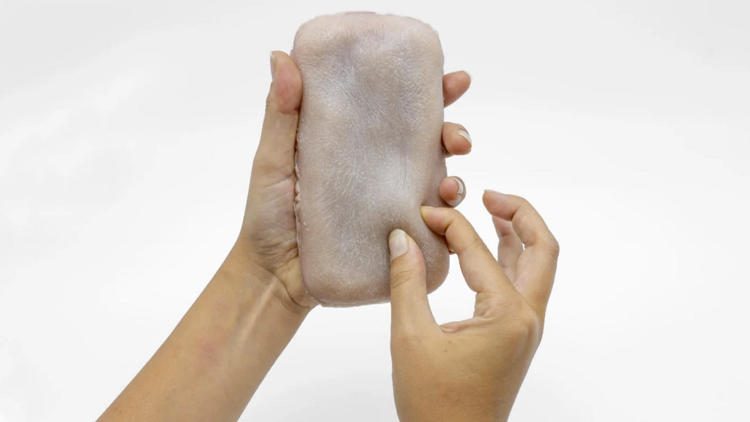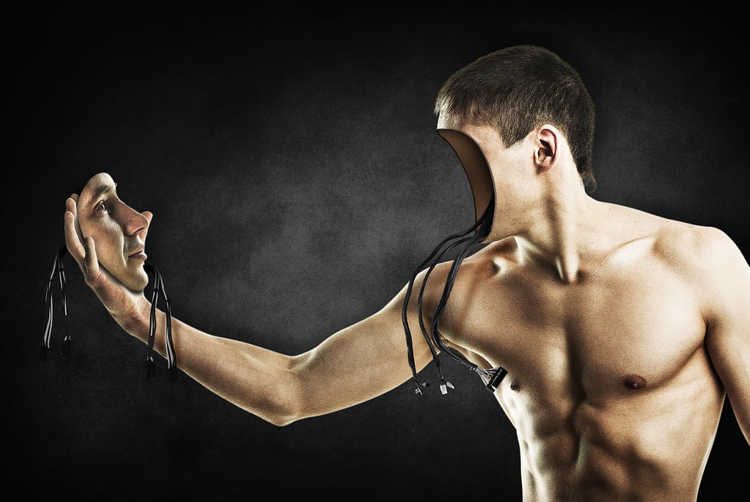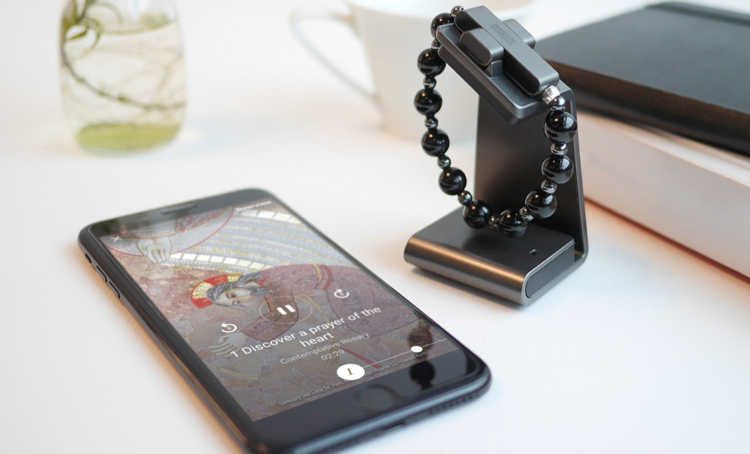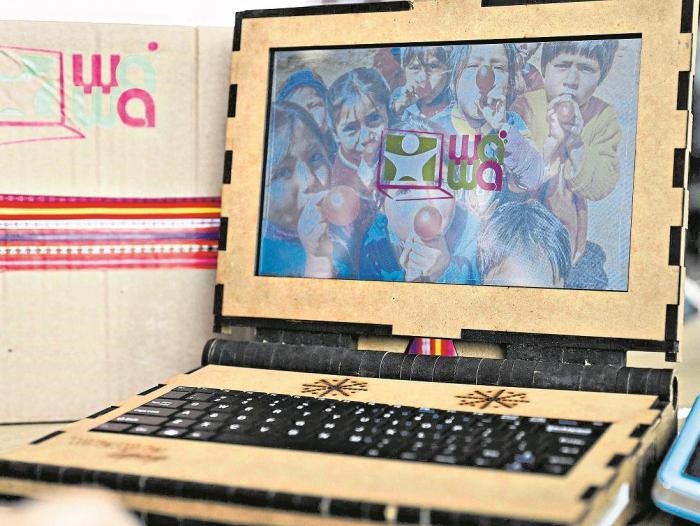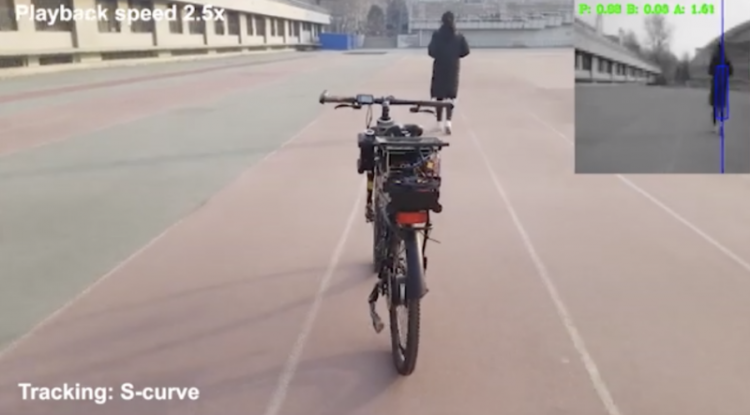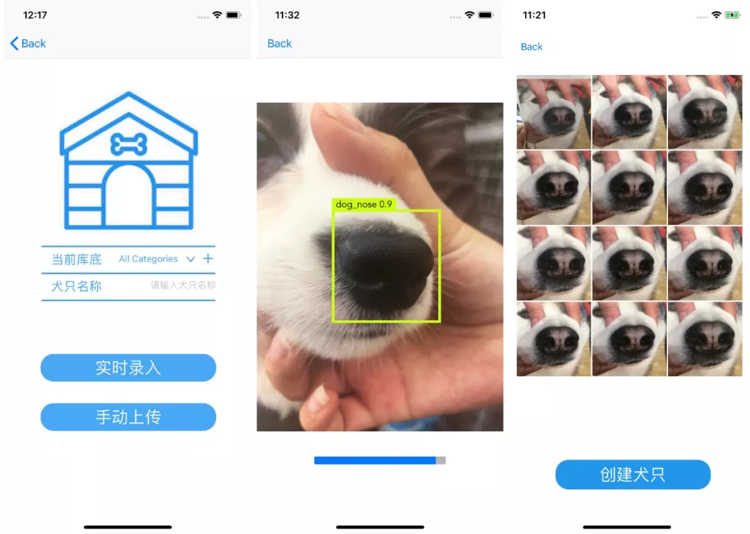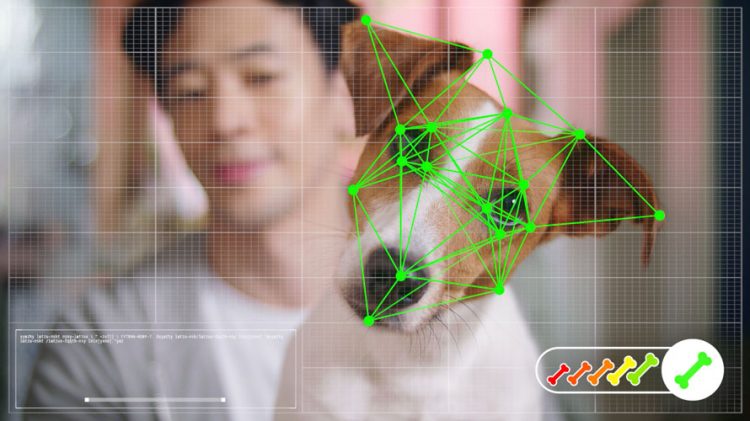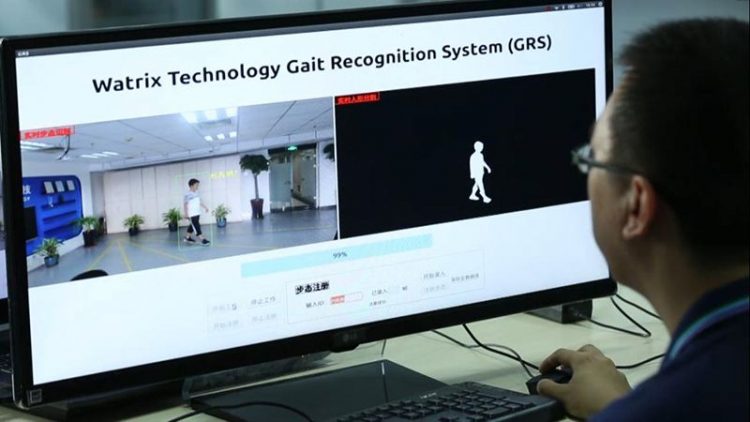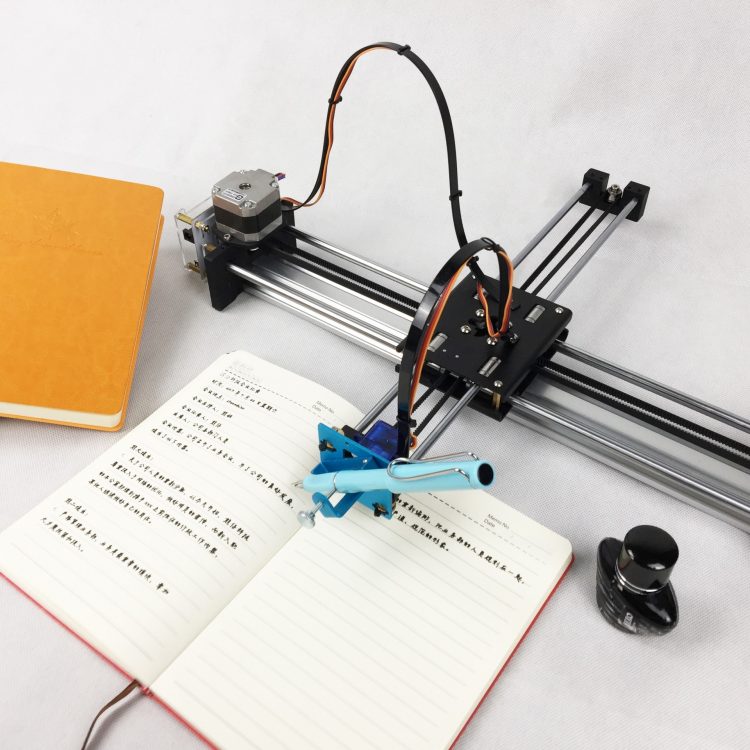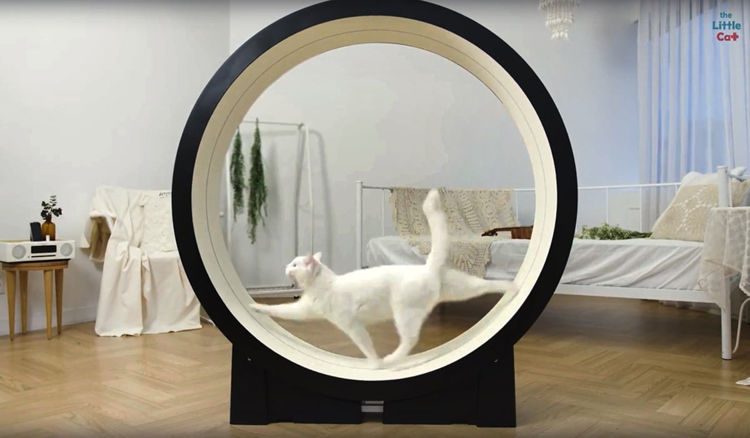A team of French and English researchers recently showcased a prototype phone case called Skin-On, which not only mimics the look and feel of human skin, but also enables interaction communication through gestures like pinching or tickling.
Developed by researchers at the University of Bristol in partnership with Telecomm ParisTech and Sorbonne University, Skin-On consists of a layer of stretchable copper wire in between two different forms of silicone layers. The materials are mass-produced, and the creators of Skin-On claim that the cost of a commercial version of the case would be around $6.5. While anyone could build it, project leader Marc Teyssier admitted that finding the right balance to create what is essentially artificial skin was challenging, considering the case was also supposed to detect touch. But why bother making a smartphone case that everyone generally agrees is “decidedly creepy”. Dr Anne Roudaut, Associate Professor in Human-Computer Interaction, explains:

